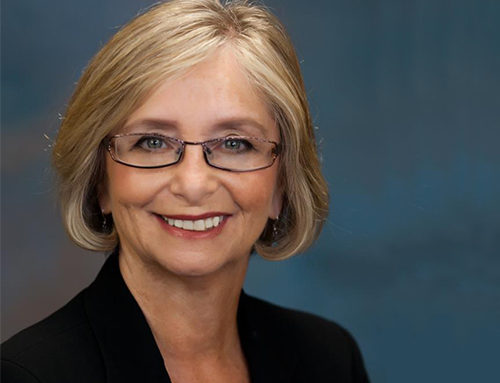Reprinted with permission from Boardsource. The original article was originally published on May 28, 2020 and can be found here.
And it goes that when one person can focus on self and not focus on what’s wrong with the others, he can serve as a working model for others, then another, then another, and then others will pull up a little bit. And over time, they will pull up a fair amount.
— Dr. Murray Bowen, in conversation with Kathy Wiseman
It is understood that COVID-19 has changed the world for us all. There are realities and practicalities to manage, and so many out there are offering great advice and food for thought that is all so very, very helpful; so very, very good. It’s easy to get lost in our day to day work, and focus less on the things that are at the heart of being a strong leader. While it’s scary trying to navigate these uncharted waters, we are all doing what we can do and what we have to do.
There is another kind of work that can be done if we can focus part of our efforts in that way. Spending some individual and collective time and thought to rise above the right now — looking from the perspective of the macro in addition to the micro — we just may see that although we are in a time of great challenge, we are also in a time of great opportunity.
But being a leader in this time of change means focusing on these three essential elements: believing in the future, remaining calm, and practicing trust. During this time, boards and CEOs should be partners in leadership — we need both arms to be practicing these three elements.
Believing in the future
Change has always been inevitable. Yet even as the world is rocked with what we feel is uncontrollable, we have far more power to imagine and create and focus on a preferred future than we might believe. If we can dwell in the possible — asking ourselves, “What might things look like for our organizations and ourselves on the other side of this pandemic?”— we can envision the future we intend rather than settle with a future by default. If leadership — our boards, our CEOs, our staff — can spend time in the space of ponder and wonder, and ultimately co-create our preferred future to serve, we can help create this powerful path forward.
Remaining Calm
Tony Scucci shared, “I met with a small group of social workers yesterday and introduced the idea that folks in the helping professions often work with clients who may be experiencing issues currently that the social worker has dealt with personally sometime in their past. What’s unique (at least to me in my experience) about dealing with this pandemic is that this time around, the social worker and the client are experiencing it at the same time … going through it together, and the social worker does not have the benefits of lessons learned from past experiences to bring forward into the helping relationship.”
I see a lot of people and organizations in a kind of panic asking questions for which there are no answers, and sometimes laying blame which is pointless. This really is about ultimate leadership. No one can orient to the future if they are in a panic. Leaders must remain calm; anxiety is as contagious as the virus, yet so can be calmness.
Orienting to the future requires hope and hopefulness. This is an essential ingredient. When you have hope, you can rise above the what is — the right now.
Practicing Trust
Orienting to the future also requires trust — in ourselves and in others, especially leaders. Trust is that firm belief in the reliability, truth, ability, or strength of someone or something. Trust inspires.
So we offer these as meditations in which to ponder and set powerful intention:
FEAR
It is said that before entering the sea, a river trembles with fear.
She looks back at the path she has traveled, from the peaks of the mountains, the long winding road crossing forests and villages.
And in front of her, she sees an ocean so vast, that to enter there seems nothing more than to disappear forever. But there is no other way.
The river cannot go back.
Nobody can go back.
To go back is impossible in existence.
The river needs to take the risk of entering the ocean, because only then will fear disappear, because that’s where the river will know it’s not about disappearing into the ocean, but of becoming the ocean.
— Khalil Gibran
Moments of suffering interrupt your life and they remind you that you are not the person you thought you were. They carve through the floor of the basement of your soul and reveal much deeper depths than you ever knew you had before.
— Paul Tillich
It’s not so much that we’re afraid of change…but it’s that place in between that we fear…It’s like between trapezes; it’s Linus when his blanket is in the dryer; there’s nothing to hold on to.
— Marilyn Ferguson
In times of change, the learners will inherit the earth, while the knowers will find themselves beautifully equipped to deal with a world that no longer exists.
— Eric Hoffer
The best way to predict the future is to create it.
— Peter Drucker
What is, is. However, we invite you not to dwell in the “what is.” “What is” is simply a result of the past. Focus forward and always reach for a better feeling thought. A rising tide floats all boats.
Co-authors Katha Kissman and Tony Scucci are both senior governance consultants at Boardource. Katha Kissman is also an experienced interim executive.





